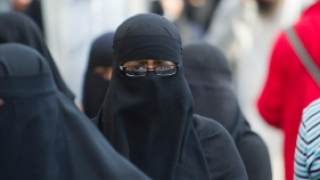Face veil controversy

The Government has this week ordered a review into whether NHS staff should be permitted to wear full face veils.
Health Secretary Jeremy Hunt has asked the General Medical Council to ensure that there is "appropriate" face-to-face contact between staff and patients. But he said that individual hospitals must draw their own policies "in a way that is right in their area" and that national guidelines were a "matter for the professional standards bodies" as opposed to politicians.
Find out more (BBC) >
Andrea Minichiello Williams, CEO of Christian Legal Centre, said:
"Accommodations are being made for Muslims who want to wear veils but where are the accommodations for Christians who want to wear a cross?
"Shirley Chaplin served as a nurse for thirty years before she was told that she had to remove the cross that she had always worn around her neck at work. Why was there no review for Shirley and others like her?
"The review into full face veils shows that some religions are more equal than others in the Government's eyes."
Crown Court ruling
In a separate case, the Crown Court ruled this week that a Muslim woman can stand trial wearing a full-face veil, though she must remove it when giving evidence.
Commenting on the decision in an article for the Telegraph, Bishop Michael Nazir-Ali said: “Any decision made by society must be based on objective criteria which have to do with maximising freedom and maintaining fairness, justice and good order for all. It seems to me that there are a number of such criteria which would restrict or prevent the full-face veil or the niqab being worn in public places.
